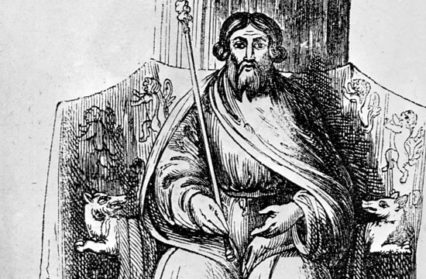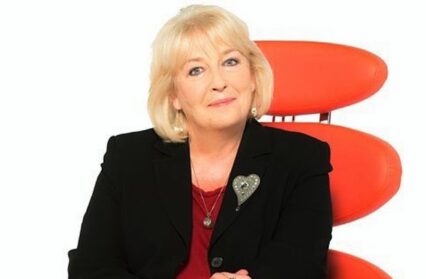Adam Somerset listens in on a Radio 4 panel discussion about Owain Glyndŵr – Melvyn Bragg and guests discuss the man behind the major Welsh revolt against England.
The archive of Radio 4’s In Our Time is vast and eclectic. In 2019 Owain Glyndŵr has joined its subjects of discussion. The result is crisp and comprehensive. When In Our Time is at its best the contributors, who are drawn from tertiary education, mix expertise with lucidity. Melvyn Bragg’s chairing tautly comes down hard on jargon, nit-picking and scholarly feuding. The extent of his contribution rises and falls; brevity, as in this programme, is testimony to the quality of conversation by the guests.
The participants for this programme are Huw Pryce, Professor of Welsh History at Bangor University, Helen Fulton, Professor of Medieval Literature at the University of Bristol, and Chris Given-Wilson, Emeritus Professor of Medieval History at the University of St Andrews. The role by Bragg is minimal, comprising a series of short guiding questions and one call for a point of clarification.
Insight into history begins with context. The conquering of Wales, achieved by Edward I in the 13th century, was 200 years in the achieving. The territorial settlement was complex with a division between Crown lands, 40 marcher Lords and the territory of the Principality. The Marcher Lords were magnates with interests in France and Ireland, their political focus on Westminster.
Glyndŵr himself held land known as a Welsh Barony. He was a descendant of the Princes of Powys and Deheubarth and had fought with the English in both Scotland and France. Helen Fulton refers to a praise-poem by Iolo Goch which narrates his boyhood and his exploits fighting for Richard II in Scotland.
Bragg enquires as to the roots of revolt. The prime cause was the status of towns and the exclusion of the Welsh from trade. English burgesses had a monopoly of trade for up to fifteen miles around a town. In addition the nobles of Wales held small status in the eyes of those of England. Service to the English nobility had extreme limits to the extent to which Welsh nobles might rise.
In England the issue of Henry Bolingbroke’s legitimacy as king made the country more open to attack from all sides, Scotland, France and Wales. In Wales Conwy castle was captured by the brothers Rhys ap Tudur and Gwilym ap Tudur. Glyndŵr’s first target, a reprisal attack, was the sacking of Ruthin. There was no wish to occupy the towns which were burned. A major turning point was the capture of Edmund Mortimer at the Battle of Bryn Glas in June 1402, a pitched battle with around two thousand on both sides.
In 1404 an alliance with France was negotiated which led to a major French force coming into south-west Wales. By 1405 most of Wales was up in arms. The strategy, in alliance with Mortimer and the Duke of Northumberland, was to divide England and Wales into three. The agreement, the Tripartite Indenture of February 1405, between Owain Glyndŵr, Edmund Mortimer and Henry Percy gave Wales a large area of the west of England.
Wales had a natural disadvantage in the population imbalance. That of England was two and a half million in England against around two hundred thousand in Wales. By 1406 the tide was turning against all the insurgents. Henry IV prevailed in the rebellions in the north of England. With more money from parliament he was able to spend £12,000 a year on establishing permanent garrisons in Wales. That was the key to military success. But as a coda Huw Pryce comments on the fact that Owain Glyndŵr was never betrayed. In the context of the era that was highly unusual.
The radio discussion is carried out in language that is colloquial within a structure of energy and momentum. Bragg’s chairing is light and deft and the whole is informative and to be recommended.
On the BBC website Glyndŵr is spelt Glyndwr. This is in common with London’s editorial style when treating languages from other countries. Descartes’ first name, for instance, is rendered as Rene.
In Our Time can be found here.
Adam Somerset is an essayist and a regular contributor to Wales Arts Review.





